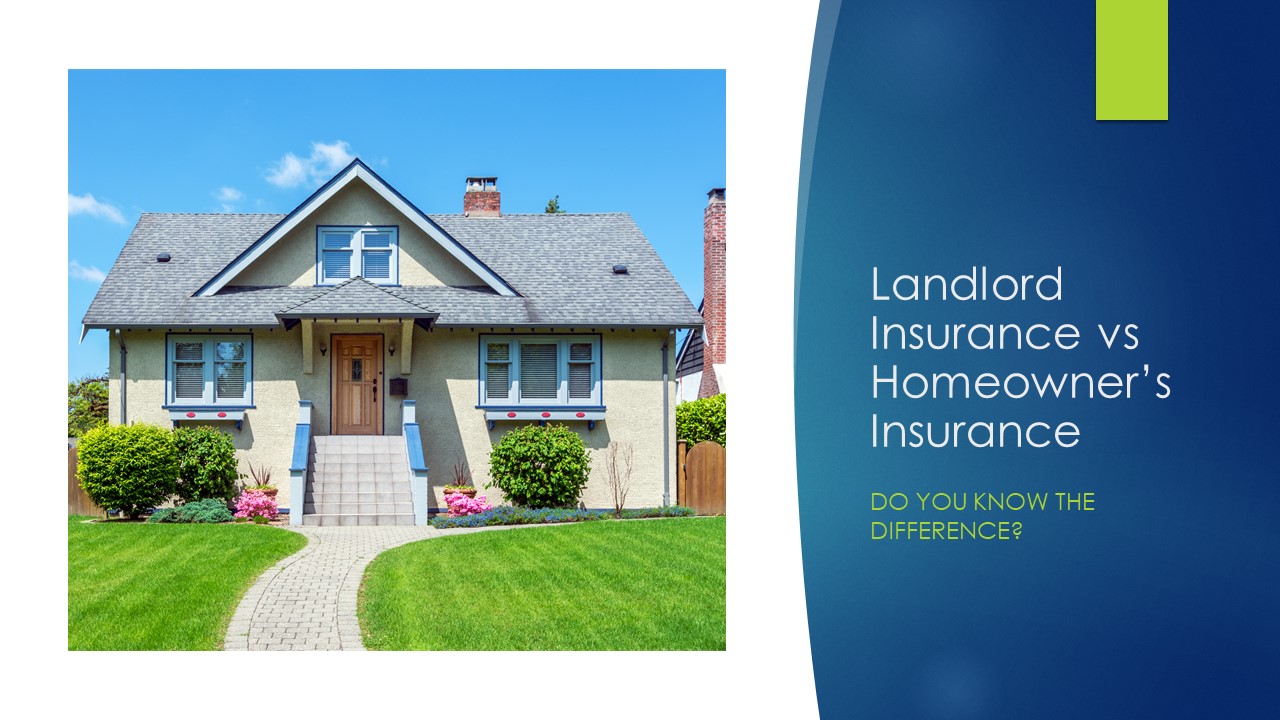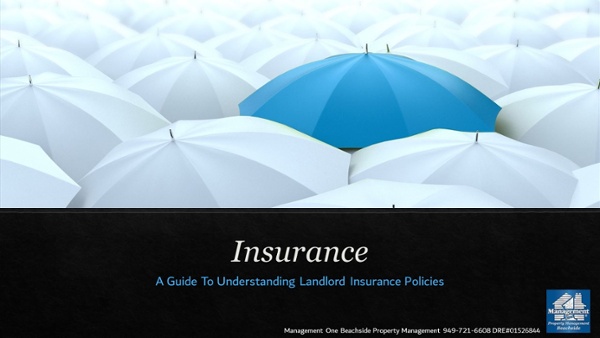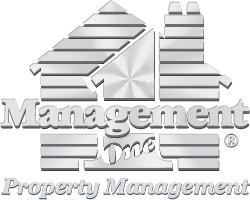
Landlord Insurance Versus Homeowners Insurance
“I have a Homeowner’s Insurance policy; do I really need a Landlord Policy?” According to Allstate, “Landlord insurance is a policy for someone who rents out a home they own. This type of insurance typically includes two different types of coverage: property and liability protection. Both coverages are intended to help protect you, the landlord, from financial losses.
Over the years of being in the property management business, we find that most landlords don’t really know the difference between a Homeowner’s Insurance policy and a Landlord Insurance policy. Most think there are one in the same and don’t realize there is a difference until they find themselves needing to make a claim and then find out they don’t have the proper coverage.
The most significant difference between the two types of insurance is property coverage; a homeowner’s insurance will cover personal property such as furniture, clothing, computers, Tv’s and yes, even sometimes jewelry as well as the structure and surrounding buildings. Landlords insurance will cover items used to service the rented property along with the property itself. It’s important to note that the Landlord Policy doesn’t cover the tenant’s belongings; thus, they will need to secure a Renter’s Insurance Policy.
In addition to Primary Liability Coverage, there are four essential elements that all Landlord Insurance policies should include. These elements are Malicious Intent, Fire, Loss of Rents, and Vandalism. Check out this great guide with detailed information about these vital items.

Malicious Intent
Malicious Intent happens when the resident renting your home, intentionally damages the property above and beyond “normal wear and tear.” We are talking destroys the carpet to the point it must be replaced, holes in the wall, overall filth, piles of debris left behind, and more. We have seen this happen, and landlords are left scrambling to secure the funds to bring the property back to a rentable condition. This scenario is precisely why it’s important to ensure you have Malicious Intent in your policy. Equally important is ensuring the tenant has Renter’s Insurance so you can recoup the cost from their policy and not affect your premiums. YES, this coverage enables you to sleep at night. The best part is most of the insurance companies don’t charge extra for it.
Fire
Your fire policy will rebuild part or all your property only, so this is pretty straight forward.
Loss of Use
Now, let's start thinking like an investor; you are all investors if you own a rental property. Your business is to make money with an investment/rental property! But what happens if the property burns down, which happens, or the tenant cause so much damage to the house and it will take six months to be fully repaired. You still have a mortgage to pay, right? That payment doesn’t stop just because the home is vacant or in distress. Don’t worry! If you have Loss of Rents or Loss of USE coverage, in your landlord’s insurance, you may sleep like a baby because you don’t have anything to worry about. Loss of rent or in some cases, called Loss of Use will cover up to 12 months of the rental income! Some companies include this coverage in your policy for no additional fees while others charge for it, but… IT IS WORTH IT! It might be a few more bucks a month but, how much is your peace of mind worth?
Vandalism
Let say you are about to rent out the property and a few days before your tenant moves in someone breaks in, and the property gets vandalized! Again, homeowner’s insurance might not cover you! But, the landlord’s insurance will! However, once your property is vacant for more than 30 days your insurance will not cover you so always get a 60-day vacancy policy. One Air Conditioning unit could cost you $4,000 or more. You can activate your vandalism and loss of rent coverage in this case!
Something important to mention is that some mortgage companies request you to have homeowner’s insurance while you have an active loan with them! Be sure to ask them if this is the case before canceling your homeowner’s coverage and getting landlords insurance.
Liability
Though not listed out in the top four items, liability is the primary focus of the insurance policy. After all, why have a policy if it doesn’t provide basic liability coverage. You may consider increasing the liability coverage if your property has a pool or spa since those are added risks, whether you own the home or are renting the house. For example, your tenant has a small soiree, and a kid gets injured because he was running around the pool! We all know, unfortunately, the first thing that comes to some people’s minds is… LAWSUIT! Well, again, here is where you may be able to use your landlord’s insurance liability coverage since this helps you pay for your expenses if you are found legally responsible after someone is injured on your property or if you are required to pay for damage done to someone else's property.
Want to save some money in your landlord’s insurance? Make sure you DEMAND your tenant to have renter’s insurance! Many owners do not know that if you provide a copy of your tenant’s renter's insurance declaration page, you may receive a discount.
Ready to sign up for your Landlord Insurance Policy, start by checking with your Insurance company to see if they provide such a policy; after all, you may get a discount for having multiple policies. You can also check out our blog on the Top 5 Landlord Insurance companies by clicking the image below or if you like, contact Management One we can refer you to a couple of top insurance companies.
Kristan Pennington










